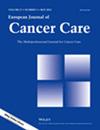Clinicians’ Evaluation of Lung Cancer Clinical Quality Indicators and Comparative Performance Data in Practice
Abstract
Objective. Lung cancer is commonly diagnosed and is the leading cause of cancer-related death, morbidity, and burden of disease globally. There is an ongoing need to ensure patients receive optimal evidence-based care and to identify and reduce unwarranted clinical variation to achieve best possible outcomes. The EnRICH program has developed evidence-based clinical quality indicators to measure processes and outcomes of lung cancer care, and a feedback dashboard to report comparative performance data, which highlight variation in both care and outcomes. The aims of this study were to evaluate the acceptability and utility of the quality indicators and feedback dashboard and identify benchmarks for performance monitoring and priorities for future quality improvement interventions to address observed clinical variation. Method. Clinicians from lung cancer multidisciplinary teams (MDTs) at six tertiary clinical sites across regional and metropolitan NSW were invited to participate in evaluation interviews. Interviews were conducted via videoconference and recorded with consent. Data were analysed thematically using framework methods. Results. Thirteen clinicians participated in interviews, with representation from each clinical site and specialty. All participants considered the quality indicators to be clinically meaningful. Three main themes were identified: (i) the importance of timely, local, quality data; (ii) implementable versus nonimplementable clinical practice changes; and (iii) the need for ongoing performance monitoring. Clinicians prioritised two areas of unwarranted clinical variation that could be immediately addressed through easily implementable quality improvement interventions to positively impact patient care: (i) a process to ensure that all stage III patients are discussed by a multidisciplinary team prior to commencing treatment; (ii) a referral pathway to palliative care within eight weeks for patients diagnosed with stage IV disease. The importance of lung cancer nurse specialists for improved care coordination was highlighted. Conclusion. Clinicians would like to continue to receive close-to-real-time quality data for ongoing performance monitoring to identify and address unwarranted clinical variation.


 求助内容:
求助内容: 应助结果提醒方式:
应助结果提醒方式:


